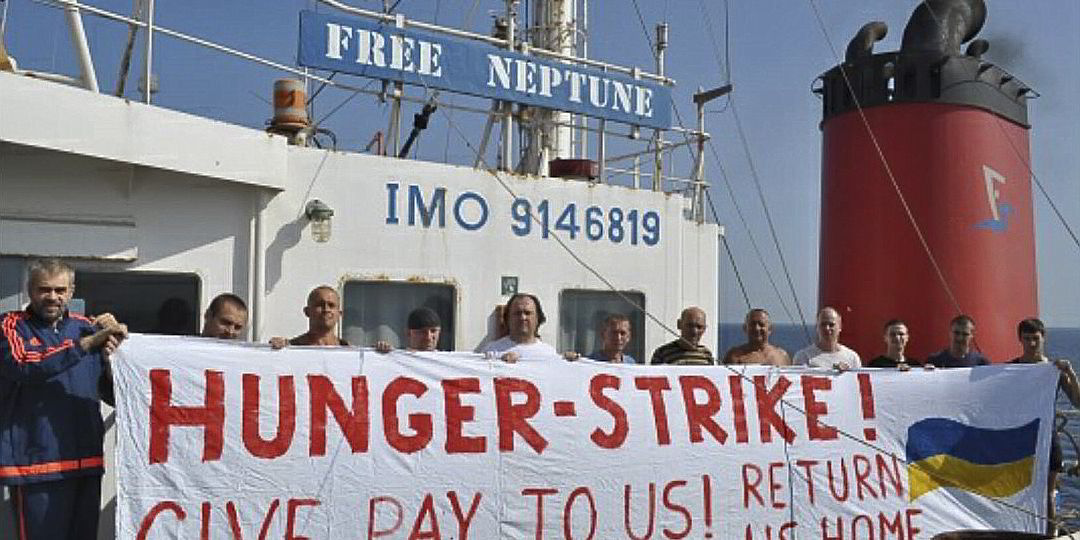The UK high court has ruled that underwriter Griffin can pursue Greek shipowner Ion Varouxakis for unaccounted-for general average payments arising from a bulker hijacking incident in 2012.
The 22,056-dwt Free Goddess (built 1995) was seized off Somalia while carrying steel coils to Thailand and later released, but Justice Stephen Males said the Freeseas CEO then induced the vessel's owning company to breach a settlement agreement by not delivering its cargo.
Males ruled Varouxakis must be treated as having accepted the jurisdiction of the UK court due to withdrawing from the legal process.
Varouxakis, who lives in Greece, is being sued for inducing the breaches of contract by companies under his control and of which he is or was the sole director, the judge said.
Jurisdiction was sought pursuant to the Recast Brussels Regulation relating to tort.
Griffin said as a result of the defendant's conduct it lost the right to claim general average contributions which were payable in London.
Varouxakis disputed this, contending that the damage in question was suffered either in the place where the underlying contract was broken or alternatively in Guernsey where Griffin is domiciled.
Alternatively he contended that Griffin's claim is a "matter relating to insurance" and so he could only be sued in the Greek courts, but the judge rejected this.
Griffin also said Varouxakis' application was out of time, but the Greek owner disputed this too.
Piracy claim paid
The underwriter had insured Adventure Five, the owner of Free Goddess, under a policy of kidnap and ransom insurance for a 30-day round trip voyage which involved passing through the Gulf of Aden.
Griffin paid out just under $6.5m under the policy, including sums for ransom payments, and the vessel was eventually released and made its way to Salalah, Oman.
In February 2013, while the vessel was at Salalah, a settlement agreement was concluded between Griffin, Adventure Five and the manager of the vessel, a Marshall Islands company.
The owner had to account for any payments recovered.
Griffin argued that the deal implied the owner would not take any steps that would render performance of the bill of lading contracts impossible and would ensure that they were performed or best endeavours made to perform them.
It is Griffin's case that the shipowner however committed breaches of the agreement and that it was "induced to do so by the defendant," the ruling said.
Varouxakis had signed the settlement agreement on behalf of both the shipowner and the manager.
It was envisaged that the ship would be repaired and would proceed to Thailand to discharge the cargo.
Instead it remained in Salalah, with the crew unpaid and in increasing distress.
Monies were advanced by Griffin and by the vessel's hull insurers for repairs to be carried out, but they seem not to have been used for that purpose, the judge said.
Unknown to Griffin, the bill of lading holders commenced arbitrations in London, seeking orders for delivery of the cargo in Thailand.
In April 2014 Varouxakis wrote to the cargo interests saying: "We have taken the decision to cut our loses [sic] and close the book on Free Goddess. I regret that this may become a total loss for your cargo, but it is impossible for us to keep throwing good money after bad money..."
Orders ignored
In August, the tribunal issued awards ordering the vessel to proceed to Bangkok, but it remained in Salalah, with the cargo and crew still on board.
In April 2015, the bill of lading holders applied for an order for the cargo to be handed over in Salalah. The shipowner resisted that application, stating that the vessel was or would shortly be ready to sail for Thailand.
In May that year, the vessel was sold by the owner, with Varouxakis signing the bill of sale, to a new entity.
It was renamed Figaro and bareboat-chartered back to another company in the Freeseas group.
"This had the effect of destroying the shipowner's possessory lien over the cargo for general average," the judge said.
In October the tribunal issued further awards, this time ordering the shipowner to deliver the cargo to the bill of lading holders in Oman. The shipowner did not comply with these awards either.
The crew, by now in such distress that they were reliant on humanitarian aid from the port authorities, remained on the vessel, as did the cargo.
The crew was eventually repatriated in February 2017. On 28 March 2017, the tribunal issued yet further awards, requiring the shipowner to deliver up the cargo within 42 days.
The bill of lading holders applied for these awards to be converted into judgments of the UK court, and those judgments were duly issued on 12 April 2017. They required the cargo to be delivered to the bill of lading holders in Oman by 9 May 2017. Once again, that did not occur.
In June 2017 the Salalah port authorities caused the now-abandoned vessel to be moved within the port for safety reasons. It seems that the cargo was eventually discharged and sold in late 2017, though to whom and at what price is not in evidence, the judge said.
The vessel was also sold, for scrap.
No general average adjustment has ever been finalised nor any security obtained.
Griffin's case is that these events wiped out the owner's claim for a general average contribution from the cargo interests due to potential counter-claims.
In 2016, Griffin sued the shipowner in the UK high court for breach of the settlement agreement.
It was initially defended, but on 2 March 2017 the shipowner ceased to participate in the action.
"They are in breach of an order made on 10 April 2017, with the result that their defence is to be treated as struck out," Males said.
"Griffin could have proceeded to enter judgment against them but did not do so. They appear no longer to have any assets, or at any rate no identifiable assets against which a judgment could be enforced."
Griffin had also started an action in February 2017 against Varouxakis personally for inducing or procuring breaches by the shipowner and manager of the settlement agreement.
It alleged the shipowner received a payment of $800,000 from the cargo interests on account of general average together with a further payment of $800,000 from the vessel's P&I club, for which it was obliged to account, but that Varouxakis ensured that it failed to do so.
"The shipowner was obliged by clause 4 of the settlement agreement to account to Griffin for those payments but was induced by Mr Varouxakis not to do so," the ruling said.
Discussions fruitless
Varouxakis responded on 6 November 2017 by describing Griffin's "purported claim" as "completely unmeritorious" and suggesting further discussion to find what he described as a constructive way forward.
There was then a telephone conversation between Griffin's solicitors and Varouxakis on 5 December 2017. No agreement was reached.
"Although some aspects of this conversation are disputed, a contemporary attendance note records Mr Varouxakis as having said that he had forgotten about the claim and that, as far as he was concerned, it 'does not exist', the judgement reads.
Upon filing his acknowledgement of service, Varouxakis had 28 days to make his application to challenge the jurisdiction of the court.
Varouxakis' evidence is to the effect that he did not understand the email dated 24 October 2017 to amount to notice to terminate an agreed moratorium and that his understanding was that "the ball was therefore very clearly in [Griffin's] court when we ended the conversation on 5 December 2017".
Males said: "I find this difficult to accept. It is more likely that Mr Varouxakis was simply hoping that, if he did nothing, the action would go away. I consider that there was no good reason for the failure to make the jurisdiction challenge.
"There is, moreover, another feature of this claim which tells powerfully against an exercise of discretion in Mr Varouxakis's favour.
"That feature is the shipowner's repeated determination, at Mr Varouxakis's instigation, to flout the awards made by the arbitral tribunal, as well as the judgment of this court enforcing the most recent of those awards.
"There is no evidence at present that this was other than a deliberate choice made by Mr Varouxakis personally, such as to render him in contempt of court."
Males added: "I make clear that I express no view about the merits of the claim, one way or the other.
"If the case proceeds, these will have to be investigated, including the basis on which it is said that Mr Varouxakis has a personal liability."






